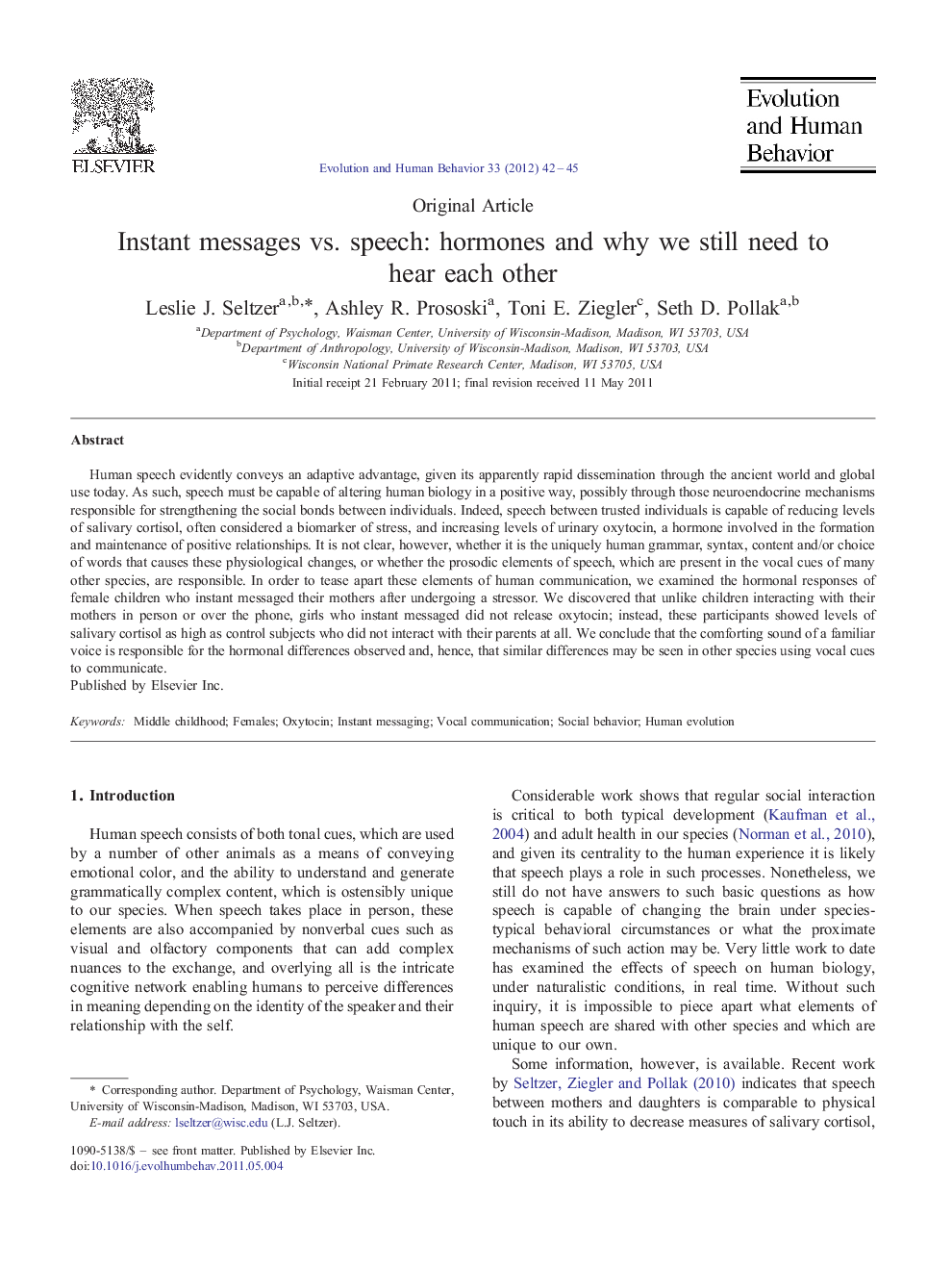| Article ID | Journal | Published Year | Pages | File Type |
|---|---|---|---|---|
| 943236 | Evolution and Human Behavior | 2012 | 4 Pages |
Human speech evidently conveys an adaptive advantage, given its apparently rapid dissemination through the ancient world and global use today. As such, speech must be capable of altering human biology in a positive way, possibly through those neuroendocrine mechanisms responsible for strengthening the social bonds between individuals. Indeed, speech between trusted individuals is capable of reducing levels of salivary cortisol, often considered a biomarker of stress, and increasing levels of urinary oxytocin, a hormone involved in the formation and maintenance of positive relationships. It is not clear, however, whether it is the uniquely human grammar, syntax, content and/or choice of words that causes these physiological changes, or whether the prosodic elements of speech, which are present in the vocal cues of many other species, are responsible. In order to tease apart these elements of human communication, we examined the hormonal responses of female children who instant messaged their mothers after undergoing a stressor. We discovered that unlike children interacting with their mothers in person or over the phone, girls who instant messaged did not release oxytocin; instead, these participants showed levels of salivary cortisol as high as control subjects who did not interact with their parents at all. We conclude that the comforting sound of a familiar voice is responsible for the hormonal differences observed and, hence, that similar differences may be seen in other species using vocal cues to communicate.
